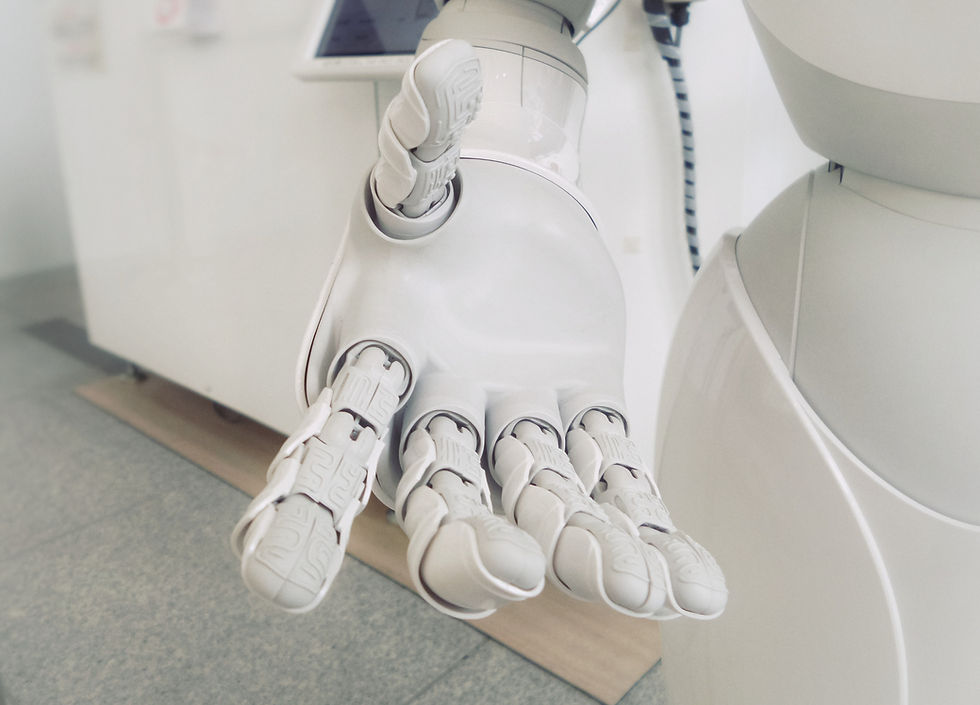Guarding Against Discrimination in the Age of AI: EU Competition Chief Urges Ethical 'Guardrails'
- Sharon Rajendra Manmothe

- Jun 14, 2023
- 2 min read
In the words of EU competition chief Margrethe Vestager, "Guarding Against Discrimination in the Age of AI" becomes a critical imperative. Vestager stresses the necessity for ethical "guardrails" to address the risks associated with advancing artificial intelligence (AI) technology.

Guarding Against Discrimination
According to Vestager, it is crucial to establish safeguards in scenarios where AI determines livelihoods, such as mortgage applications. The vast amounts of data used to train AI models can inadvertently perpetuate biases and discrimination. It is paramount to ensure that individuals are not subjected to unfair treatment based on their gender, race, or location.
Proposed AI Rules
The European Parliament recently approved proposed AI rules to combat these risks. The legislation categorizes AI applications according to their potential risk to consumers. Stricter controls will be imposed on high-risk systems, such as those influencing credit scores or access to loans and housing. This focused approach aims to mitigate discrimination and bias in critical domains.
Taking a Pragmatic Approach
Vestager acknowledges the need for pragmatism when refining AI regulations. Instead of waiting for unattainable perfection, she advocates for immediate implementation, continuous learning, and necessary adjustments along the way. It is more realistic to achieve 80% compliance now than to indefinitely delay progress in pursuit of 100% perfection.
Global Collaboration and UN Approach
Addressing the challenges posed by AI necessitates a global approach, as highlighted by Vestager. She emphasizes the importance of consensus among like-minded countries before engaging other jurisdictions, such as China. A collaborative United Nations approach to AI regulation would foster international cooperation and establish common standards for ethical AI practices.
The Risks of Unchecked AI
Unchecked AI usage carries significant risks. Vestager warns of AI's potential influence on elections and its capacity to manipulate individuals through social media profiling. Irresponsible or malicious use of AI can undermine the fabric of society. Implementing "guardrails" is vital to protect individuals from manipulation and ensure transparency in AI algorithms.
Future Perspectives and Final Thoughts
While concerns about the extinction of humanity due to AI persist, Vestager emphasizes the more immediate threat of discrimination and biases within AI systems. The proposed AI rules and the prioritization of ethical considerations by the EU aim to address these concerns. Through the implementation of ethical "guardrails," AI can be harnessed responsibly to ensure fairness and equality in decision-making processes.
As AI continues to advance, it is imperative for governments, organizations, and developers to prioritize ethical practices, refine regulations continuously, and foster global collaboration. By doing so, we can shape a future where AI technology serves as a force for good while safeguarding against discrimination and bias.
In conclusion, embracing the words of Vestager, let us forge a path forward that embraces the potential of AI while upholding the values of fairness, equality, and justice in an increasingly digital world. Together, we can navigate the challenges, establish ethical standards, and unlock the true transformative power of AI for the benefit of all.




Comments